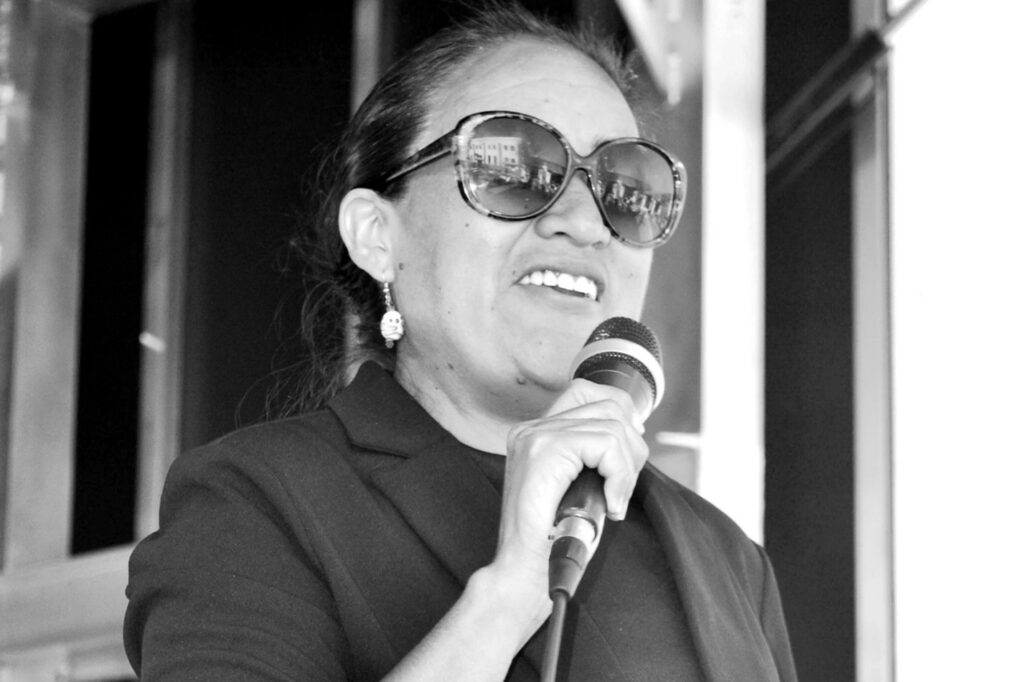Photo Credit: Alamosa Citizen
In 2021, a group of community members came together with a seed of an idea: how could we help students without documentation access a college education? These community members came from across organizations in the community, including The San Luis Valley Immigrant Resource Center, the Boys and Girls Club, the San Luis Valley Food Coalition, the Colorado Housing and Finance Authority, the Colorado Trust, Adams State University, and more. Together, they started the Zoila Gomez Si Se Puede Scholarship. They named the scholarship after one of the founding members, Zoila Gomez, an Olympic-level athlete from the Valley who navigated the college experience without documentation. Like many groups, they had the initial ingredients for success, a diverse group coming together to gather their different strengths to make something possible.
Often groups get these two steps right: they bring people together and they act. To be sustainable, however, they need other ingredients. For this group, The Civic Canopy was able to help with some of the needed dialogue that allows a seed to become more than just a sprout and create a set of shared results the group could get behind. Canopy started with an initial strategic planning session that would help the group discuss where they were now and where they wanted to go. The idea was to put together a bigger plan that could help them apply for more funding to distribute to students. Through facilitated dialogue, the Canopy provided a space for them to dream together, identify the core barriers for these students, and imagine a set of actions that could help students not just with financial support, but the mentorship and advocacy needed to make a long-term difference.
A few months later, conflict struck. The group saw two different paths forward. At the Canopy, we assume that where you’re standing determines what you can see. Because no two people can stand in the same place at the same time, disagreement is always present. It’s heartbreaking, but it’s also natural. Without a strong culture of collaboration, this disagreement can create a division that splinters groups dedicated to a better future.
On the one hand, there were group members who wanted the students they were serving to be at the heart of the scholarship, deciding how the scholarship should develop and serve student needs. They argued that for too long institutions have made decisions without those impacted by those decisions and in the end, made bad decisions. Alternatively, there were those worried about the ethics of having students at the table because those students could receive funding, but if they were also part of decision-making would there be favoritism that benefited some more than others? Both were valid concerns. Throughout this conversation, different assumptions emerged about who should be able to make decisions like this. Was it the organization that fiscally sponsored the group? That organization’s board of directors? Was it the group members? Or the founder of the group?
At this point, Canopy supported the group to step into dialogue to better understand one another’s perspectives. Facilitators began with an activity to help participants reflect on what was most important to them in this conversation, what was at stake, and how previous conflicts impacted how they were able to show up. By sharing some of these hopes and fears, participants could see each other as imperfect humans trying to do their best. This set the groundwork for having a conversation about values. The facilitator asked each person to rank the following values in terms of how important they were in their decision-making about the group:
- Fairness
- Transparency
- Equity
- Accessibility
- Inclusion
- Efficiency
- Sustainability
- Community
- Autonomy
- Responsibility
- Adaptability
A construction worker will tell you that you can have good and cheap, but it won’t be fast, or you can have cheap and fast, but it won’t be good. These are value tradeoffs, and the same principle is true with other value-based decisions. For the scholarship committee, they could have fairness by not having students be part of decision-making, but they would lose out on inclusion as a result. The question for the group was which tradeoffs are we willing to accept? In the end, the group decided to stay with the SLV Immigrant Resource Center as their fiscal sponsor, dial back their more ambitious goals, and create a stable foundation for the scholarship before expanding. Since working with the Canopy, the group has been able to successfully raise funds for another round of scholarships through individual donations from community members, support from the Immigrant Rights Coalition, Colorado Housing, and Finance Authority, and a private foundation.


